
YOUR ATTITUDE TOWARDS LIFE
WHEN IT IS IMPOSSIBLE TO CHANGE OUR CIRCUMSTANCES, IT IS WELL WITHIN OUR POWER TO CHANGE OUR ATTITUDE TOWARDS OUR CIRCUMSTANCES.
Hennie Zeelie. Translated from Deur ‘n ander bril. Lux Verbi
My attitude to my circumstances very often dictates my actions as well as the end result.
At some stage or another in our lives, we have all been touched by astonishing accounts of people who have risen above their circumstances. When I find myself in such a position, though, it is not always that easy to be objective about it.
(THIS IS AN EXTRACT FROM MY E-BOOK, UNEMPLOYMENT, YOU AND GOD’S RESCUE LADDER )
I remember one occasion while I was in the army during the bush war in Angola. We were on a grueling, lengthy patrol and after nine stressed days filled with intense concentration, surviving on ration packs and carrying heavy kit, drenched after a heavy thunderstorm, we decided to set up camp for the night. Most of us, whacked and fed-up, slouched down onto the driest wet spot, propped up against our backpacks. One chap cynically-sarcastic remarked:
“Here I am, plodding along like a wet dog in the mud while some lucky blighter” – not his actual choice of words – “is making out with my girlfriend under a warm duvet – stuffed to his eyeballs with pancakes and hot coffee!”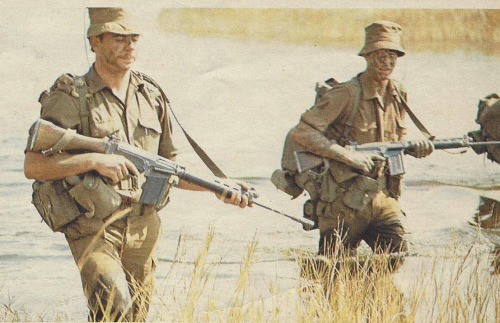
A grunt, loosely translated into, “We hear you…” came from the squad. One of the guys who was on guard, sitting on a huge boulder a couple of yards away, sardonically replied:
“They can make out all they want, but they don’t have the view that I’ve got here.”
We all got up to have a look. Where he was positioned on that boulder, he had a panoramic view of a gorge framed by the most stunning rainbow. It was so breathtakingly beautiful that the whole incident has remained with me till this day.
While the rest of us immersed ourselves in our own miserable thoughts, one man – who was in the same boat as the rest of us – drew inspiration from the most spectacular view.
In the original musical, Time, by Dave Clarke the character, Akash – brilliantly played by the late Sir Laurence Olivier, delivers the following verdict:
Throughout the universe there is order
In the movement of the planets, in nature
and in the functioning of the human mind.
A mind that, in its natural state of order,
is in harmony with the universe
and such a mind is timeless.
Your life is an expression of your mind.
You are the creator of your own Universe –
For as a human being, you are free to will whatever
state of being you desire through the use of your
thoughts and words.
There is great power there.
It can be a blessing or a curse –
It’s entirely up to you.
For the quality of your life is brought about
by the quality of your thinking –
think about that.
Thoughts produce actions –
look at what you’re thinking.
See the pettiness and the envy and the greed and the
fear and all the other attitudes that cause
you pain and discomfort.
Realize that the one thing you have absolute
control over is your attitude.
See the effect that it has on those around you
for each life is linked to all life
and your words carry with them chain reactions
like a stone that is thrown into a pond.
If your thinking is in order,
your words will flow directly from the heart
creating ripples of love.
If you truly want to change your world, my friends,
you must change your thinking.
Reason is your greatest tool,
it creates an atmosphere of understanding,
which leads to caring which is love
Choose your words with care.
Go forth … with love.
Thoughts, all our actions (except reflexes) originate in our minds. Consider for a moment that action can also be to do nothing. You actively decide to do nothing about a situation. Our attitude towards other people too, or even particular issues, is being controlled by our thoughts. If you don’t feel like facing someone today, it is your mind duping you into believing that you have some grudge, dislike or perhaps envy against that person. Or if you keep shunning a specific task, it is your mind preventing you from getting on with it. Your mind tells you that you can’t do it or you wouldn’t like it or it’s much better to take a nap or something. No-one else. And who controls your mind? You! It can indeed be manipulated by external factors – if you allow it – but ultimately you are in control of your mind.
In a restaurant, on a napkin, I once read the following striking words:
“In each of us, two natures are at war – the good and the evil. All our lives the fight goes on between them and one of them must conquer. But in our hands lies the power to choose – what we want most to be, we are”.
How do you feel about your current situation, what does your mind tell you? If you think you are crestfallen then you will feel depressed. If you think you are in high spirits, you will be motivated.
Thoughts should not, however, be confused with dreams, day dreaming. If I dream of how I will be a successful businessman, then I am not one yet.
Dreams are good. They provoke thoughts. But only real thoughts set actions in motion. It changes your attitude, your mind set, your approach and your actions.
A lot of us don’t know what or where we want to be. We do know what we do not want to be. I do not want to be in jail. I do not want to be a failure. That is a fact.
So what do I want to be?
Content? Happy?
When will I be happy? Ah, now we are getting somewhere.
What will have to change, what will have to take place, before I declare:
“Now I have reached the pinnacle of happiness”?

I can now dream on…
Or I can start thinking, putting thoughts in motion, plan, and act.
I think – and this is merely a personal view – people are at their happiest when they are successful. A successful marriage, a successful career, a successful relationship with your Creator, in short, we will be happy when we have a successful, well-balanced life. Is this an illusion? I don’t think so.
It all depends on how you measure success. If success has a material basis, it will always be a dream because everything with a material basis is transient, it is insatiable. I have never come across someone who has got enough money. I still have to meet a lady who is pleased with her appearance (her eyes are too small, her hips are too wide, too many wrinkles, too much of this or too few of that). I also haven’t met a man yet who is happy with his car (for more than a week). As soon as the new model is unveiled, he starts itching.
Do not read into this that a man should not have a new car or that a lady should not try and look her best and that you should not have a healthy bank balance. Have it, work for it, and go for it. But do not measure your success against it. All of these are side-issues. Soon it’s yesterday’s news and then all of a sudden you don’t feel successful any longer. Oh, other people, your neighbours and friends, could still perceive you as successful, but deep inside you will feel discontented, hungry for more.
One often sees this in the glitter and glamour world of super rich so-called celebrities. They undergo expensive procedures to change their appearance; they buy the most expensive houses and jewellery, top of the range yachts and cars and marry the most beautiful people. How long does it last? Marriages are over before the third kiss. Very soon the car is too old and the house across the street has a swimming pool installed that is bigger than theirs. It is then when those people, in their quest for happiness, very often find comfort in something else like drugs and alcohol and subsequently find themselves being rejected by society as failures or depart this life, lost and lonesome.
So, what is success, in other words, when will you be happy?
The starting point for judging success is, first of all, peace with yourself. When you have forgiven yourself for all the mistakes of the past and left them there – in the past. When you have asked God to forgive you for all the wrongdoings in the past and then accepted His mercy. When you have put right all the injustice you have done to other people. Then you can move forward. Forget about the past! Focus on today and the road ahead.
You will be at peace with yourself when you, in all conviction, can pronounce that at this moment you are giving it your everything. No matter what you are doing, you are giving it your best, whether it’s your marriage, your relationship with your children, your work, or your leisure time – nothing less than your best.
You will absolutely give it your best when you do it sincerely, in honour and glorification of His name. When you do it as if He is sitting in front of you or accompanying you, witnessing every move you make. You wouldn’t dare skimp your work while the boss is keeping an eye on you, would you? Well, God is with you, every moment of your life. He sees and hears everything you are doing.
You will, in addition, be at peace with yourself if, after giving a challenge your best shot, you acknowledge the result; even if it is not the result you anticipated. The result is achieved, end of story. Nothing can be done to change it. It belongs to the past and not all the tears in the world will bring about another outcome. Try again; go back to the drawing board. Start afresh.
Success is furthermore not measured by the number of people you have passed and how many people you have beaten, but by the number of people you have brought with you. That is the test of real success. When, one day, you arrive in front of the gates of heaven, puffing and sweating in your snazzy car, rather smug because you have beaten so many people, God will not look at your car and your clothes and your wallet with appreciation and congratulate you. No, He will ask: “Why are you alone? Where are the other people, your children, your friends, your business partners?”
You perform several roles during your lifetime. Child, parent, employee, employer, friend – maybe you are chairperson or captain or in charge of some group or another. During your lifetime you will, through your many roles, touch the lives of thousands of people. Your touch will bring sad or happy memories. How will people remember you? If you look back on the footprints you have left over the years, how many people have followed you and where have you lead them.
You don’t necessarily have to be a born leader with an awe-inspiring personality. You can take the lead by just taking someone’s hand, by being there to share in joys but also in the agony of people. You can lead by example. Don’t tell people what to do, show them by setting an example through your values and principles. Start with your family, then your workplace and widen your circle to reach friends, extended family and your surroundings. Be an asset to all those you come into contact with. Spread the love of Jesus which you have been blessed with in abundance.
My dear mom hasn’t got the personality of an Oprah Winfrey or Hillary Clinton. In fact, she soon gets in a flurry if it just looks as if the spotlight is aiming in her direction. She neither has strings of qualifications and titles behind her name, nor safes full of money. I believe, however, that when one day she arrives in heaven, our heavenly Father will be waiting for her with a big smile and say: “Welcome home, precious child, you utterly deserve what awaits you here in my house.” As a devoted mother she gives her utmost and as wife (when my dad was still alive) she gave nothing less. The love she puts in cooking and baking can almost be tasted. Her principles and values are being met with the greatest admiration by everyone she interacts with. People follow in her footsteps. As mother, grandmother, wife, friend – in all her roles, she spreads love. Her life is successful.
Success depends very little, if at all, on luck. Success is earned; you have to work for it. Opportunities present themselves from time to time to all of us. Successful people like the rest, experience lucky shots but also disappointments. The difference with them, however, lies in their persistent and devoted pursuing of a pre-determined goal. They forge opportunities into good fortune. Success does not come overnight. It takes time and is usually the result of sustained hard work. The legendary golfer, Gary Player, once remarked: “The harder I practice, the luckier I get.”
Ask yourself: “What can I do that is different? How can you bring about change?”
I once read somewhere, I’m not sure where, that successful people do what other people hate to do and they do it fervently. Success is something that you have to achieve yourself. It is to work while other people rest; carry on even though you are disheartened; hold on in the midst of setbacks, ever reaching for that beckoning winning-post. Success starts with a dream, an ambition… seeing something different and better in the everyday drudgery, and ultimately realising your dream through endurance and perseverance.
A last thought on success and successful people. Learn from the mistakes of others. Successful people make countless mistakes and go through tough times as well, but it is during times like these where character is formed and becomes apparent. At one stage or another you will suffer a loss or endure a terrible knock, but it is then that the men are separated from the boys.
Work according to predetermined work or business ethics based on your Christian values and standards. In the long run there is only one road to follow: the honest, straight way. Be truthful with your bank manager, your suppliers, your employees, your customers, with everybody. Yes, and also with yourself!
You will have to deal with so many problems that will automatically cross your path anyway – why multiply them unnecessarily? Poor or inadequate service and work result in problems. Something that has been dealt with efficiently and properly the first time round brings satisfaction – to you and the customer.
It is easy telling someone to stay positive, but in reality it is much different. Yet, we can at least try to have a positive outlook. Two very well-known songs always soothed my wounds and aching heart during times of pain and distress:
“Smile when your heart is aching, smile even though it’s breaking…SMILE”.
When you are down in the dumps and your heart really aches, try putting on a brave face with a smile to wipe that frown away. Smile through those pressed lips. Even look at yourself in the mirror when you smile. See how long you can keep the smile. When people enquire about your welfare, make an effort to tell them, with a smile on your face: “I am very well, thank you”. Always very well. It is ever so painful, for you as well as those around you, to be reminded of all your problems. People tend to steer clear of those who are always complaining and moaning.
When I feel like exploding from bottled up distress and pain and desperately need to share it with someone, I share it with my Heavenly Father and tell it to my dear better half (as I will explain in the next chapter) and/or I go to my best friend or confidant and get it out of my system. I do not share it with everyone-and-his-friend. It is neither good for me, nor for my relationship with other people.
Another song that inspires me during low periods is the familiar elevating rhythm of…
When upon life’s billows
You are tempest tossed
When you are discouraged
Thinking all is lost
Count your many blessings
Name them one by one
And it will surprise you
What the Lord has done
Choir:
Count your blessing
Name them one by one
Count your blessings
See what God has done
Count your blessings
Name them one by one
Count your many blessings
See what God has done
Are you ever burdened
With a load of care
Does the cross seem heavy
You are called to bear
Count your many blessings
Every doubt will fly
And you will be singing
As the days go by
Choir:
When you look at others
With their lands and gold
Think that Christ has promised
You His wealth untold
Count your many blessings
Money cannot buy
Your reward in heaven
Nor your home on high
Choir:
So, amid the conflict
whether great or small
do not be discouraged
God is over all
Count your many blessings
Angels will attend
Help and comfort give you
To your journey’s end
Choir:
– Words by Johnson Oatman, 1897
I hum it, I whistle it and I put it into practice. I make a mental list of each and everything I can be grateful for today: health, full belly, friends and family who care for me…
Go on, make your own lengthy list. Show gratitude towards God for all the blessings with which he is showering you in abundance despite the fact that we don’t deserve a single one of them.
Try these ideas to stay positive. Think of ways to keep your positivity alive. Nurture the flame of hope and faith.
Something that will often impact upon your outlook on life is when things are not going your way and you start to ask: Why? Why are things going wrong? Why me? I am trying so hard…
I answered my own query this way:
My whole life I have always been up for a challenge. I thrive on challenges.
I have realised very early in my life that, academically, I am not the world’s best student. In fact, I think after all these years some of my teachers – those who are still alive – probably wake up in the middle of the night screaming in cold sweat when they have flash-backs of me in their classrooms. Despite my academic record, I decided to go to university, part-time. And with grace from Above, I even finished a post-graduate degree.
Ever since I was in primary school my physique was such that no-one would ever confuse me with Mr Universe. This motivated me during my compulsory military training to put myself to the test in the Parachute Battalion, known to be one of the most gruelling training courses in the army.
What am I trying to tell you? How smart I am? Absolutely not!
I want to tell you that I was – and still am – willing to commit myself to challenges despite knowing my shortcomings. I acknowledged the fact that I would have to sacrifice a lot and that I would endure some rather tough times (when I completed my studies it felt as if I had been released from prison!). I realised that it would require exceptional effort from me, but I was nevertheless prepared to do it… in reaching my own, personal goals.
When I, therefore, go through a demanding period in life or crisis situation, I put it down as just another training course that God has put me on – a demanding one; even more demanding than my part-time studies or my training at Parachute Battalion. God has selected me personally for this challenge because He knows I like challenges. Wasn’t I willing to make huge sacrifices for the sake of my own goals? Will I not therefore be willing to make even bigger sacrifices when God’s goals are at stake? For that reason God puts me on a course, to train me, to prepare me, to give me knowledge and muscle, first-hand experience and understanding for a very important mission that He has installed for me at a later stage. But if I am not qualified and equipped, I will not be able to do it.
Wow! God must have seen something in me, for today I admit that I truly feel honoured because on more than one occasion God considered me the ideal person for a job he wanted accomplished. He reckoned that I would be strong enough to complete the demanding course. And, boy, did I go on many courses!

Determination
I never wanted to disappoint God, so I really gave it my utmost under testing circumstances.
God will never expect more from you than you are capable of. You will be surprised to discover what you and He together really can accomplish. Give it a go. Your Coach will go with you, all the way. Trust Him. He knows what you are going through. Remember, He also went through excruciating suffering.
Get your thoughts in order. Focus on God.
































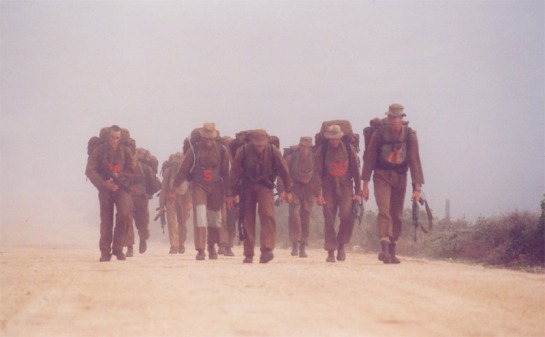



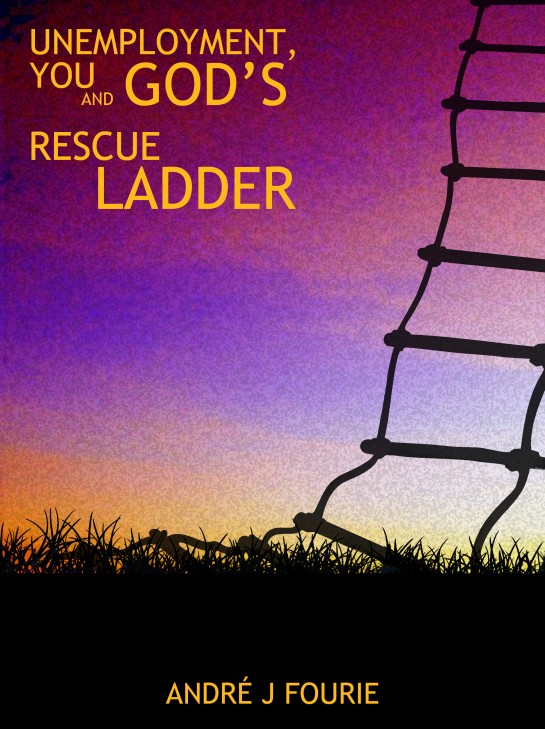


















 Stay on your knees so that it is easier for you to stand up straight when you have regained your strength.
Stay on your knees so that it is easier for you to stand up straight when you have regained your strength.











 Die middagstories was destyds se sepies – Die Geheim van Nantes, Die Banneling, Die Wildtemmer, Die Wit Sluier… stories wat die land aangegryp het. Nie juis almal in die kraal van ‘n laerskoolseun nie, maar enige iets was beter as huiswerk doen…
Die middagstories was destyds se sepies – Die Geheim van Nantes, Die Banneling, Die Wildtemmer, Die Wit Sluier… stories wat die land aangegryp het. Nie juis almal in die kraal van ‘n laerskoolseun nie, maar enige iets was beter as huiswerk doen…



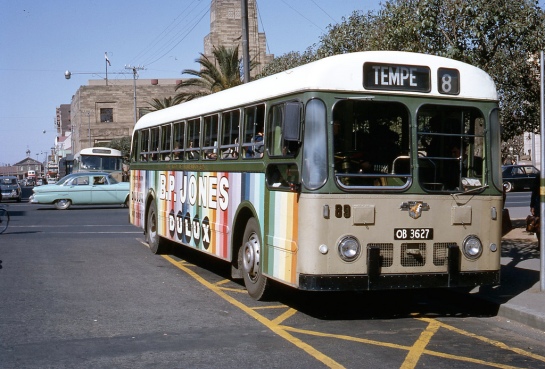

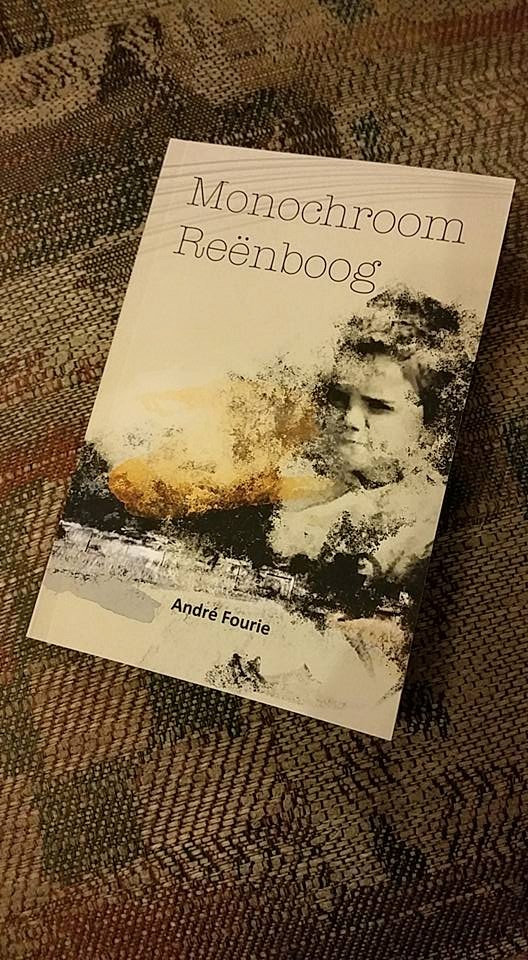
‘n Moet lees boek. Skitterende skryfstyl, eerlik, openhartig. Die storie tref mens fel,veral vir ons wat in daardie era groot geraak het. Die boek lewer ‘n intense genot en mens is half jammer daar is nie nog hoofstukke oor nie, veral as jy lees en besef dit is die laaste bladsy. Baie geluk mnr Fourie, jou boek is beslis aan te beveel vir jonk en oud. Stukkie ware geskiedenis van ons brose land en sy mense.